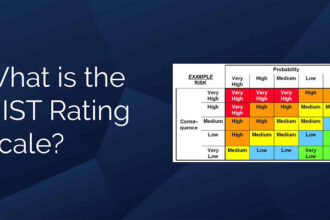In the current business environment, the balance of power has decisively shifted toward the employee. The professional world is no longer a closed system; it is a networked economy where every internal decision is instantly subject to external scrutiny. For organizations focused on sustained competitiveness, the most pressing strategic challenge is the failure to effectively manage employee reviews and feedback, leading to a fragmented employer branding narrative that directly undermines talent acquisition efforts.
- The Systemic Crisis of Fragmentation
- The New Standard of Candidate Due Diligence
- The Quantifiable Cost of Neglect: The Reputation Tax
- Talent Acquisition Inflation: Calculating the Cost Per Hire Penalty
- The Multiplier Effect: Employee Experience and Market Trust
- Strategic Modernization: The Imperative to Centralize Employee Review Management
- The Foundation of Trust and Accountability
- Data Consolidation and Actionable, Segmented Insights
- Review.jobs: A Certified Platform for Authentic Employee Reviews
- Pioneering Integrity and Centralized Control
- Harnessing AI-Powered Insights for Strategic Decision-Making
- Driving Unbeatable Employer Branding: The ROI of Action
- From Data to Cultural Agility
- Securing the Talent Pipeline
- Final Thoughts
The Systemic Crisis of Fragmentation
The traditional performance review model is demonstrably obsolete. Evidence confirms that conventional feedback mechanisms are perceived as confusing, inconsistent, and ultimately disconnected from the needs of both employees and management. This outdated methodology—often reliant on infrequent, subjective judgment—breeds frustration, disengagement, and, critically, distrust across the organization.
The administrative disorder is overwhelming: a reported 95% of HR leaders express deep dissatisfaction with traditional performance reviews. This dissatisfaction is rooted in the “administrative chaos” caused by scattered data across spreadsheets, emails, and disconnected HR tools, which creates operational confusion and weakens employee faith in the fairness of the process. Furthermore, in today’s hybrid work structures, the physical impossibility of consistent, on-site monitoring necessitates clear, reliable, and centralized employee reviews as a foundation for effective workforce management.
This internal system failure, where 59% of employees believe traditional reviews have “no impact” on their performance, acts as a catalyst, compelling staff to seek external, anonymous venues to voice their concerns. When control over the feedback narrative is lost to other platforms, the internal process failure rapidly escalates into a volatile external employer branding crisis, making proactive employee review management a strategic necessity.
The New Standard of Candidate Due Diligence
The digital ecosystem has made external reputation management a non-negotiable component of talent strategy. The market narrative dictated by employee reviews is mandatory reading for job seekers, establishing an essential layer of trustworthiness.
Candidate due diligence has become an established norm, with roughly 83% of prospective employees actively researching a company’s reputation via reviews and ratings before even applying. This intense scrutiny highlights the critical role external sentiment plays in determining applicant flow. Job seekers assign greater credibility to authentic external reviews than to official company marketing materials. To maintain market presence, a company’s public narrative must be continuously validated by genuine, internal feedback. Organizations that master the continuous loop of receiving, acting on, and integrating feedback not only stabilize their employer branding but also streamline recruitment and draw in higher-caliber talent. Conversely, those that fail to implement structured feedback and continuously improve risk rapid reputational decay, directly inhibiting their ability to attract and retain high performers.
The Quantifiable Cost of Neglect: The Reputation Tax
Ignoring the necessity to centralize employee reviews is no longer a sustainable option; it is a measurable financial liability. The failure to adopt a robust employee review platform imposes a persistent financial tax on the business, which manifests as inflated operational costs and diminished talent quality.
Talent Acquisition Inflation: Calculating the Cost Per Hire Penalty
A damaged reputation functions as a tangible hard cost, dramatically increasing expenditures across the talent acquisition lifecycle. Research by the Harvard Business Review established that employers grappling with a poor reputation are frequently forced to offer a salary premium up to 10% higher than their reputable counterparts just to secure a candidate’s acceptance. This recurrent financial penalty compounds significantly, potentially costing businesses millions in inflated compensation simply to offset negative market perception.
In contrast, a robust employer branding strategy yields significant, measurable efficiency gains. Data indicates that businesses with a strong employer brand typically receive over double the number of applicants per job post and enjoy a 50% increase in qualified applicants. The operational leverage is substantial, translating to a 43% lower cost per hire (CPH) and a 50% faster time to hire. This quantifiable gap underscores that decentralized review management is a critical competitive disadvantage. Beyond immediate CPH, poor internal morale and fractured communication can lead to disgruntled staff and costly litigation, with a bad hire costing a business an estimated 30% of the employee’s first-year earnings or substantially more, emphasizing the financial urgency of proactive retention management.
The strategic pivot for investment must, therefore, be viewed not as an expense, but as a defensive financial measure against the costly, recurrent liabilities imposed by the “reputation tax.”
The Multiplier Effect: Employee Experience and Market Trust
The influence of internal perception extends beyond human resources, directly affecting external consumer confidence and profitability. Employee reviews are a holistic business concern, not just an HR department issue.
A company’s reputation for internal treatment has a direct correlation with consumer behavior. Specifically, 61% of consumers are more likely to shop with companies that demonstrably treat their employees well. This proves that the internal culture, fostered through consistent, positive feedback loops, is an integral part of external market value and potential revenue generation. The financial multiplier effect of effective feedback is significant: companies that implement regular feedback mechanisms experience retention rates that are 14.9% lower than those that do not, and managers who receive feedback on strengths show 8.9% greater profitability. Therefore, effective feedback is a fundamental driver of both retention and financial performance.
Strategic Modernization: The Imperative to Centralize Employee Review Management
The solution to the crisis of fragmentation is a strategic organizational shift: moving performance management from an inconsistent, reactive chore to a consistent, accountable, and transparent process powered by data. This transition demands a purpose-built employee review platform capable of standardizing, securing, and transforming feedback into strategic intelligence.
The Foundation of Trust and Accountability
The strategic commitment to centralize employee reviews is built on establishing pervasive consistency. A centralized system ensures uniform standards are applied across the entire organization, eliminating the subjectivity and inconsistency that plague manual, decentralized processes. This standardization is the critical first step in restoring organizational faith.
Furthermore, centralization ensures rigorous transparency and accountability. When reviews are tracked and completed within a secure, integrated system, employees gain confidence in the process’s integrity and fairness. Consolidating all reviews and feedback into a secure, central location ensures stronger data governance, providing HR leaders with a single, verifiable source of truth for all critical workforce data.
Data Consolidation and Actionable, Segmented Insights
Centralization is the crucial prerequisite for generating intelligence that is strategic, segmented, and predictive, moving beyond mere description. By bundling and analyzing the data, HR leaders can establish performance patterns, identify critical developmental areas, and—most importantly—predict costly retention risks before they materialize into turnover events. Effective feedback must be personalized and segmented by department, demographics, or location to isolate specific experiences and tailor interventions. Utilizing this structured feedback ensures the workplace evolves continuously, benefiting the company culture and its growth trajectory, a practice adopted by high-performance organizations globally.
Review.jobs: A Certified Platform for Authentic Employee Reviews
Addressing the deep-seated issues of fragmentation, distrust, and administrative burden requires a specialized, modern solution. Review.jobs positions itself as a pioneering certified platform specifically engineered to tackle the decentralization challenge by providing a trusted, single source for feedback management powered by advanced technology.
Pioneering Integrity and Centralized Control
The foundational strength of the review.jobs solution lies in its commitment to authenticity and centralized control. The platform focuses on gathering authentic, non-incentivized feedback to maintain the integrity of employee reviews, which is vital for making informed, credible decisions.
The platform offers a unified, intuitive dashboard for centralized employee review management, enabling users to efficiently organize, track, and analyze feedback seamlessly. Critically, the platform ensures employee anonymity through secure submission processes, fostering the trust necessary to encourage candid feedback internally, thereby overcoming the internal credibility deficit. Operational efficiency is significantly boosted through automation features. By automating tasks such as review moderation, managing FAQs, and generating customizable response templates, review.jobs provides cost-effective efficiency and streamlines the review process, freeing HR teams from repetitive administrative labor. This focus on streamlining workflows translates directly into higher productivity and user satisfaction.
Harnessing AI-Powered Insights for Strategic Decision-Making
The strategic advantage of review.jobs is its utilization of Artificial Intelligence to transform raw, potentially unstructured feedback into objective, actionable insights. AI is instrumental in reducing subjectivity and detecting unconscious bias in performance data, which fundamentally improves the fairness and consistency of the review process. This technological assurance of fairness is key to restoring internal faith in the system; studies show AI-driven feedback is 24% more likely to be seen as fair and unbiased by employees.
The platform delivers in-depth sentiment analysis by analyzing unstructured data to track key employee satisfaction metrics, Net Promoter Score (NPS), and emerging trends across departments. This detailed analysis empowers managers with an accurate, objective picture of employee contributions, enabling better, data-driven decisions. The results of adopting such technology are significant: organizations using AI-powered performance management have seen up to a 71% increase in employee engagement and a 50% surge in goal achievement rates.
The ability of AI to ensure objectivity is its most significant strategic role. By providing verifiable fairness through bias detection and objective analysis, the review.jobs platform restores the trust needed to effectively centralize employee reviews. This restoration of internal credibility naturally reduces the motivation for employees to post negative reviews externally, thereby stabilizing and strengthening the external employer branding narrative.
Driving Unbeatable Employer Branding: The ROI of Action
The strategic value of a centralized employee review platform is realized when the gathered data is leveraged to drive continuous organizational change. This continuous cycle transforms internal feedback into a competitive advantage that secures an unbeatable employer branding narrative in the talent market.
From Data to Cultural Agility
A continuous cycle of receiving, analyzing, and acting on feedback transforms organizational culture and strengthens employee engagement and loyalty. Modern talent strategy requires continuous evaluation of the Employee Value Proposition (EVP), and by utilizing measurable outcomes tracked by platforms like review.jobs—such as engagement scores and retention rates—organizations can identify areas for improvement and adjust their strategies in real-time.
Implementing changes based on nuanced, objective data highlights a genuine commitment to valuing employee voices, consequently improving retention and easing recruitment efforts. This ability to respond rapidly to feedback is an investment in organizational agility, enabling the company culture and processes to adapt faster than competitors. Successful reputation management also requires transparent communication when concerns are raised. The centralized data provided by the platform enables the business to craft an authentic public narrative, turning internal challenges identified in reviews into opportunities for trust-building and connection with both current staff and external audiences.
Securing the Talent Pipeline
Leveraging a certified platform to showcase authentic, well-managed feedback is essential for attracting and retaining top-tier talent. Companies with strong, positive reputations attract better talent; conversely, 70% of skilled candidates refuse to consider working for a company with a poor reputation. The ability to systematically collect, analyze, and showcase authentic positive employee reviews is paramount in securing the talent pipeline. A strong employer branding strategy, supported by verifiable data, ensures the company attracts candidates based on a clear and validated EVP. This self-selection process, driven by clarity on culture and values, results in a higher quality applicant pool from the outset, maximizing recruitment efficiency.
Final Thoughts
The integrity of an organization’s employer branding is no longer a matter of opinion; it is a critical, quantifiable financial asset dictated by the unfiltered voice of its workforce. For modern businesses seeking to dominate the talent market, the ability to centralize employee reviews is the defining factor that determines external reputation and internal productivity. Specialized platforms such as review.jobs offer the necessary blend of security, AI-powered objectivity, and centralized management to transform chaotic, decentralized feedback into a strategic, measurable asset. By committing to continuous, data-driven cultural evolution, organizations can ensure their internal commitment to their employees is consistently reflected in an unbeatable external reputation, securing both current workforce morale and the essential talent pipeline for future success.

















